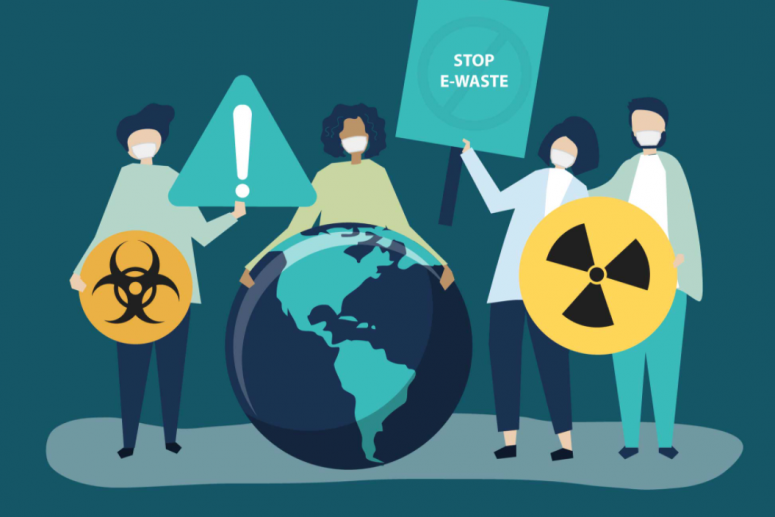Hazardous waste management is a critical concern for industries, municipalities, and organizations worldwide. Properly managing hazardous waste not only ensures compliance with environmental regulations but also safeguards public health and protects our ecosystem. In this article, we will explore the key components of an efficient hazardous waste management system and why it is crucial in today’s world.

Understanding Hazardous Waste
Hazardous waste refers to any waste material that poses a substantial threat to human health, the environment, or both. This can include chemicals, solvents, heavy metals, toxins, and even certain electronic equipment. Due to their harmful nature, these materials must be managed and disposed of with utmost care and responsibility.
Components of an Efficient Hazardous Waste Management System
An effective hazardous waste management system encompasses several key components to ensure the safe handling, transport, treatment, and disposal of hazardous waste materials:
Waste Identification and Classification
The first step in managing hazardous waste is identifying and classifying the materials correctly. This involves assessing the waste’s properties, such as toxicity, flammability, and reactivity, to determine its proper handling and disposal requirements.
Storage and Containment
Hazardous waste must be stored in appropriate containers that are designed to prevent leaks, spills, and contamination. Adequate labeling and segregation of waste materials are essential to avoid chemical reactions and ensure safety.
Transportation
Transporting hazardous waste requires compliance with strict regulations. It involves using specially equipped vehicles and trained personnel to prevent accidents or spills during transit. Timely reporting of transportation activities is often mandatory.
Treatment and Processing
Depending on the type of hazardous waste, treatment and processing may be necessary to render it less harmful or non-hazardous. This can include methods like incineration, chemical stabilization, or physical treatments to neutralize or detoxify the waste.
Disposal
Safe disposal of hazardous waste is a critical aspect of the process. Waste disposal sites must meet stringent environmental standards to prevent contamination of soil and groundwater. Options for disposal include landfills designed for hazardous waste and secure deep-well injection systems.
Regulatory Compliance
An efficient hazardous waste management system operates within the framework of local, national, and international regulations. Compliance ensures that the handling and disposal of hazardous waste meet legal requirements and prevent fines or legal actions.
Training and Education
Properly trained personnel are essential to the success of a hazardous waste management system. Training programs ensure that employees understand the risks associated with hazardous waste and know how to handle it safely.

The Importance of Efficiency in Hazardous Waste Management
Efficiency in hazardous waste management is vital for several reasons:
Environmental Protection
Efficient management reduces the risk of hazardous waste entering the environment and causing pollution. This, in turn, safeguards ecosystems, water sources, and the overall health of our planet.
Public Health and Safety
Efficient handling and disposal of hazardous waste protect the health and safety of workers, nearby communities, and future generations. Minimizing exposure to toxic materials is a top priority.
Regulatory Compliance
Efficiency ensures that organizations adhere to strict regulations, preventing legal issues, fines, and reputational damage.
Resource Optimization
An efficient system minimizes waste generation, reduces costs associated with waste management, and optimizes the use of resources.
Conclusion
In conclusion, an efficient hazardous waste management system is paramount in safeguarding our environment, public health, and regulatory compliance. It involves a comprehensive approach encompassing waste identification, storage, transportation, treatment, and disposal. By prioritizing efficiency and responsible practices, organizations can effectively manage hazardous waste, mitigate risks, and contribute to a cleaner and safer world for all.
Frequently Asked Questions
What is hazardous waste, and why is it a concern?
Hazardous waste refers to materials that pose significant threats to human health and the environment. It’s a concern due to its potential harm and the need for safe handling and disposal.
What are the key components of an efficient hazardous waste management system?
An efficient hazardous waste management system includes waste identification and classification, proper storage, safe transportation, treatment and processing, secure disposal, regulatory compliance, and employee training.
Why is waste identification and classification important in hazardous waste management?
Identifying and classifying hazardous waste is crucial to determine how it should be handled and disposed of safely, based on its properties and potential risks.
What are the environmental and health benefits of efficient hazardous waste management?
Efficient management protects the environment, public health, and ensures compliance with regulations, while also optimizing resource usage and reducing costs.
How does an efficient hazardous waste management system contribute to resource optimization?
An efficient system minimizes waste generation, reduces waste management costs, and optimizes the utilization of resources, leading to more sustainable practices.
What is the role of training and education in hazardous waste management?
Training and education ensure that personnel understand the risks associated with hazardous waste and know how to handle it safely, enhancing the overall effectiveness of the management system.







